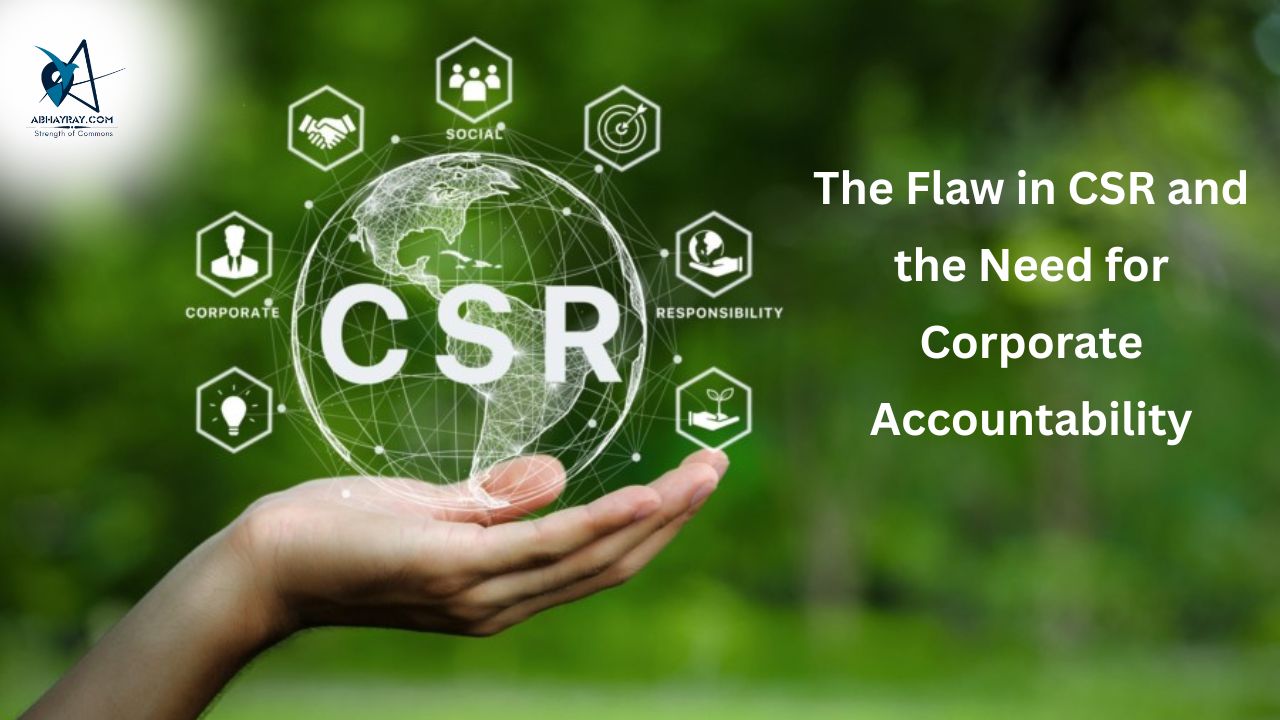Introduction
In his widely read 1970 article about the role of business in society, economist Milton Friedman justified the old adage that “the business of business is business” so confidently that more than 50 years later, according to the New York Times (which published the original piece), “his theories on the primacy of shareholders and the priority of profits still hold sway over large parts of the corporate world.”
Friedman’s most famous line claims that in a free society, “there is one and only one social responsibility of business to use its resources and engage in activities designed to increase its profits so long as it stays within the rules of the game.”
What Is Corporate Social Responsibility?
CSR is being thought of in a more expansive way than as the legal and economic obligations of organizations. According to McGuire (1963), corporations should take an interest in the social welfare of communities and company culture, which affect the general development and happiness of their employees.
Revamping CSR
Such behaviors show that although the CSR movement has been evolving for decades, it is still an extracurricular activity. In fact, in some of our largest industries, CSR programs are far outpaced by the societal harms at the core of their businesses. That’s why we must revamp the CSR concept to emphasize the necessary scope of companies’ obligations. How can this be done? One way is to change “responsibility” to “accountability.” This would call out the flaw in Friedman’s doctrine and position the business sector as a fundamental actor in society like the rest of our institutions and individual citizens.
Corporate accountability signals that businesses have obligations to society to which they are obligated, liable, and answerable. Accountability means living up to a business’s fundamental role as a member of society instead of as a hovering outsider cut off from the source that makes its existence possible.
The outsider status embedded in Friedman’s ideology is a convenient justification for irresponsibility and unaccountability. It is not aligned with established development models in any other sector of human life but is instead stuck at a novice stage. Just as children eventually grow out of their focused self-interest and develop a “pro-social adult sensibility,” the corporate mindset needs to move beyond Friedman’s call to “increase profits” and ignore everything else. In short, corporate accountability means challenging corporate citizens to come of age.
Companies already embracing this more highly invested approach are leading the way to a new era of corporate accountability.Along with its political activism, Ben & Jerry’s seeks to “eliminate injustices in our communities by integrating these concerns into our day-to-day business activities.” In 2022, sportswear giant Patagonia began transferring every dollar of its profit to a nonprofit the company’s founder, Yvon Chouinard, set up “to fight the environmental crisis, protect nature and biodiversity, and support thriving communities.”
These companies represent a paradigm shift from corporate responsibility to corporate accountability. A socially accountable corporate sector obligates itself to factor in all stakeholder groups, ecological concerns, and ethical considerations to its mission, which is what most of the population expects. Seventy percent of Americans believe it’s either “somewhat” or “very important” for companies to make the world a better place.
Foundational commitments, not fads
Rather than dreaming up ways to sound more sustainable than their operations actually are—or more equitable than the retainment trends of their employees of color attest companies committed to corporate accountability will redefine their purpose to include improving society and the environment.
Measuring the impact of CSR remains tricky, and assessing the impact of corporate accountability requires another shift in our thinking. So far, companies find that investing in messaging about their CSR programs garners more consumer respect and trust and can lead to favorable ratings from investment firms. The investment world’s ranking system for a company’s environmental, social, and governance (ESG) profile became standard as CSR developed. The higher the ESG rating, the more attractive the company may be for socially conscious investors. But since the returns thus far haven’t been as stellar as hoped, ESG profiling is on the cutting block at one investment firm after another. The concept of corporate responsibility is rooted in the profit-first-regardless-of-the-consequences model, and since the returns are winding down, the CSR fad is fading. In this time of climate crisis and complex social challenges, businesses’ role in society requires foundational commitments, not fads.
These realities demand a new mindset about the role of business in society. Naming that mindset “corporate accountability” captures the required expanded nature of a company’s obligation to look at the bigger picture, ensuring every facet of its operations enriches the tapestry of our society. This is a down-to-earth, roll-up-your-sleeves approach with the potential to influence business leaders and policy makers as powerfully as did the Friedman doctrine, but in another direction.
Case Studies – When CSR Failed and Accountability Succeeded
- BP Deepwater Horizon Disaster (2010)
BP’s CSR efforts, including environmental programs, failed to prevent the catastrophic oil spill. Despite CSR initiatives, BP faced severe environmental damage and loss of life. Only after being held legally accountable and paying billions in fines and reparations did the company address its operational failures and implement stricter safety measures.
- Nike’s Sweatshop Scandal (1990s)
Nike’s CSR campaigns couldn’t hide labor abuses in its overseas factories. Public pressure led Nike to adopt stricter labor standards, transparency, and third-party monitoring. Accountability, not CSR, drove meaningful improvements in worker conditions.
- Volkswagen Emissions Scandal (2015)
Volkswagen’s green marketing failed to cover up its emissions cheating. Accountability through legal action forced the company to recall millions of vehicles and overhaul its practices, illustrating that only genuine corporate responsibility could restore trust.
- Patagonia’s Accountability Model
Patagonia excels in accountability, with transparent ethical practices and environmental stewardship. Its commitment to sustainability and social responsibility goes beyond CSR, creating a truly responsible corporate culture.
Conclusion
While Corporate Social Responsibility (CSR) has its merits, it is ultimately a flawed concept that often falls short of creating lasting change. CSR initiatives, frequently driven by marketing or public relations goals, can be superficial and lack the depth needed to address systemic issues within a company’s operations. In contrast, corporate accountability demands transparency, responsibility, and genuine action towards long-term social, environmental, and economic sustainability. To truly make a positive impact, businesses must move beyond token CSR programs and adopt a culture of accountability that holds them responsible for the consequences of their actions. By embracing accountability, companies can drive meaningful change, build trust with stakeholders, and contribute to a more ethical, sustainable world.
GMICapitals.com RaysVeda.com GetMyStartup.com LawCanal.com GetMyIndia.com ZinCob.com Angeltors.com

